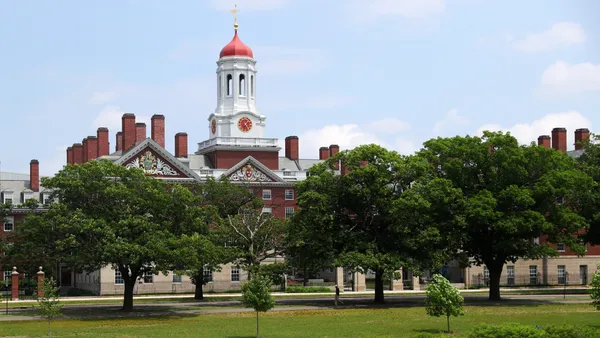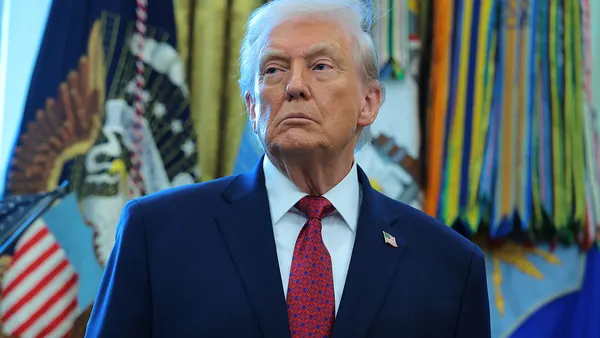Dive Brief:
- There is no easy consensus about policies to handle free speech on college campuses, and a recent meeting of university professors indicated that faculty members don’t have consistent attitudes about it either.
- At conference of the American Association of University Professors (AAUP), some speakers argued for clear guidelines that describe precisely the consequences for violations which would make responses clear and less controversial, according to a report from Inside Higher Education. Others suggested that policies too often are vague or contradictory.
- Another panel of professors said social justice “orthodoxy” has been taken to extremes, and that colleges since the 1980s have become increasingly intolerant of conservative views.
Dive Insight:
Some experts say there is a threat that state laws about free speech will limit the ability of universities to make judgments about what is taught or presented on campus, and AAUP recently issued a report about the history of free speech on campus that addresses those issues.
At the start of this year, 34 college and university systems or individual institutions had adopted or endorsed the “Chicago Principles” or a related policy, according to a report from the American Council of Trustees and Alumni (ACTA). The report notes those principles say the proper response to ideas the community may find offensive “is not interference, obstruction, or suppression. It is, instead, to engage in robust counter-speech that challenges the merits of those ideas and exposes them for what they are.” The report reviews how Purdue University successfully implemented them, the first university to do so.
The ACTA report has five key recommendations about creating an “ethos” that respects free speech, is clear about expectations and sanctions, abolishes restrictive speech codes, preserves the right to peaceful protest and puts the university in a position to remain neutral in such a controversy.
Campus safety is another issue of concern, and experts say there are a variety of issues an institution must consider when a controversial speaker, for instance, is expected to visit. They should recognize that social media will be used to incite either side and get quick results. Campus Safety Magazine notes that planning communications and a clear structure for emergency personnel are critical for incidents which, it says, are not likely to diminish soon.
To protect student journalists, a University of Florida media law professor has started the “New Voices” initiative to highlight issues about campus media and advocate for laws protecting them. The initiative has helped get such legislation passed in 13 states.












